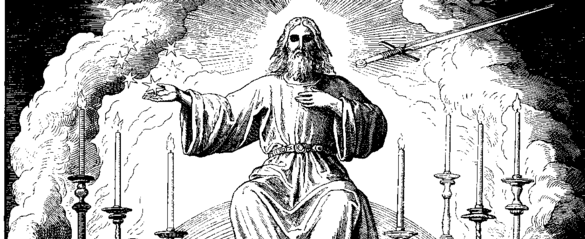One of the recently published Dead Sea Scroll documents is known as the “Register of Rebukes.” Only parts of eleven lines of a column of this document have survived. However, even these few words and parts of words are enough to see that the document, or a portion of it, was a list of the sect’s members who were rebuked because they had violated community laws.
The Approval of Abraham: Traditions of God’s Acceptance of Abraham in Early Jewish and Christian Sources
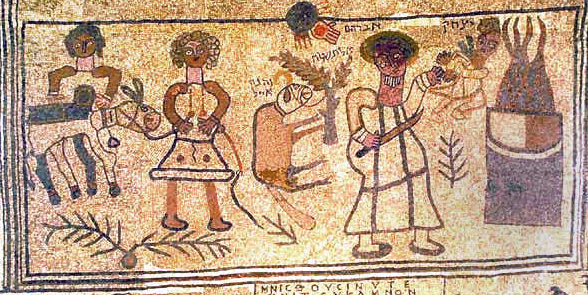
When, in ancient times, people read the account of the life of Abraham, it was common for them to ask, “When did Abraham finally make the grade? At which point in his life was Abraham approved and accepted by God?”
Jesus and the Essene Passover

Fifty years of scholarship concerning the Dead Sea Scrolls have brought clearer understanding concerning a fascinating stream of Jewish piety which existed during the final days of the Second Temple.
Can Gentiles Be Saved?
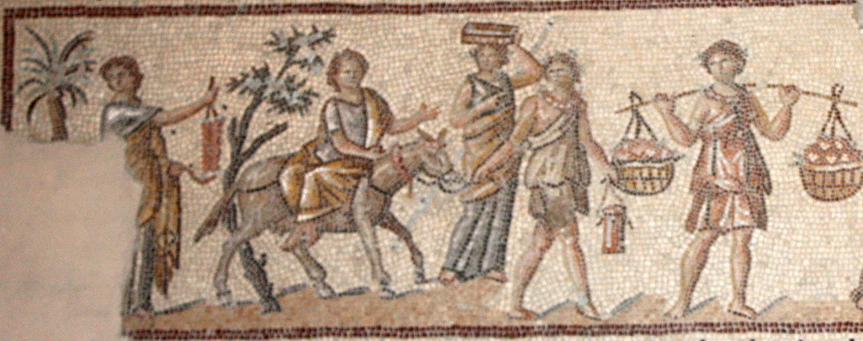
Jesus’ broadminded approach resonates with contemporary sages who belonged to the School of Hillel. In their opinion, it is better to leave God-fearing Gentiles in their blessed state with only the necessity of the moral laws given to Noah.
If Your Eye Be Single

In Matt. 6:322, where you would expect to find the idiom, “good eye,” the adjective used in our saying is not καλός (kalos, “good,” “pleasant”) but ἁπλοῦς (haplous, “single,” “simple”).
Jesus’ Command to “Hate”

If any one comes to me and does not hate his own father and mother and wife and children and brothers and sisters, yes, and even his own life, he cannot be my disciple. (Lk. 14:26, RSV)
First-century Jewish Use of Scripture: Evidence from the Life of Jesus
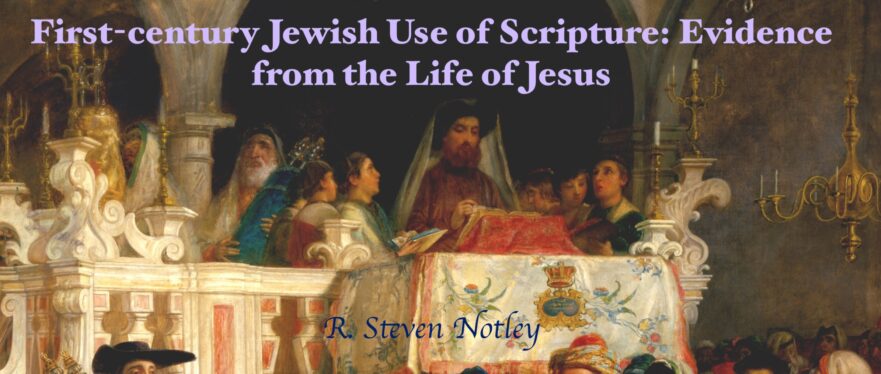
Through the window of a single New Testament episode we can gain insight into how Jesus and his Jewish contemporaries employed sacred texts with creative ingenuity to grapple with the complex issues of their day.
The Qumran Targum of Job as a Window into Second Temple Judaism: A Response to Randall Buth’s “Where Is the Aramaic Bible at Qumran? Scripture Use in the Land of Israel”
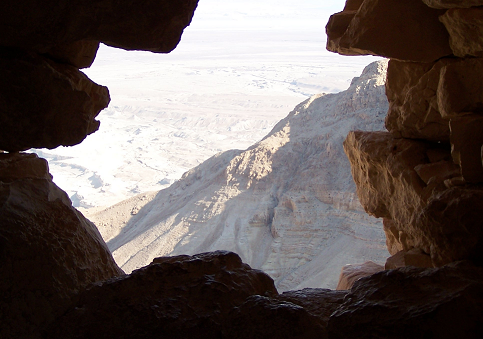
How does one explain the sparseness of the Qumran targumic corpus?
More on the Absence of an Aramaic Bible at Qumran: A Response to Jack Poirier’s “The Qumran Targum of Job as a Window into Second Temple Judaism: A Response to Randall Buth”

I appreciate this opportunity to return to some issues concerning the Targum of Job that I raised in Where Is the Aramaic Bible at Qumran? Scripture Use in the Land of Israel and to evaluate Jack Poirier’s response entitled, The Qumran Targum of Job as a Window into Second Temple Judaism: A Response to Randall Buth.
Where Is the Aramaic Bible at Qumran? Scripture Use in the Land of Israel

The documents at Qumran allow us to reconstruct Scripture access in the Province of Judea in the first century. From the evidence, we must assume that the Qumran community and the other Jewish communities in the land had direct access to the Hebrew Bible, generally understood it, and were interested in teaching that related directly to the Hebrew text.
Us and Them: Loving Both
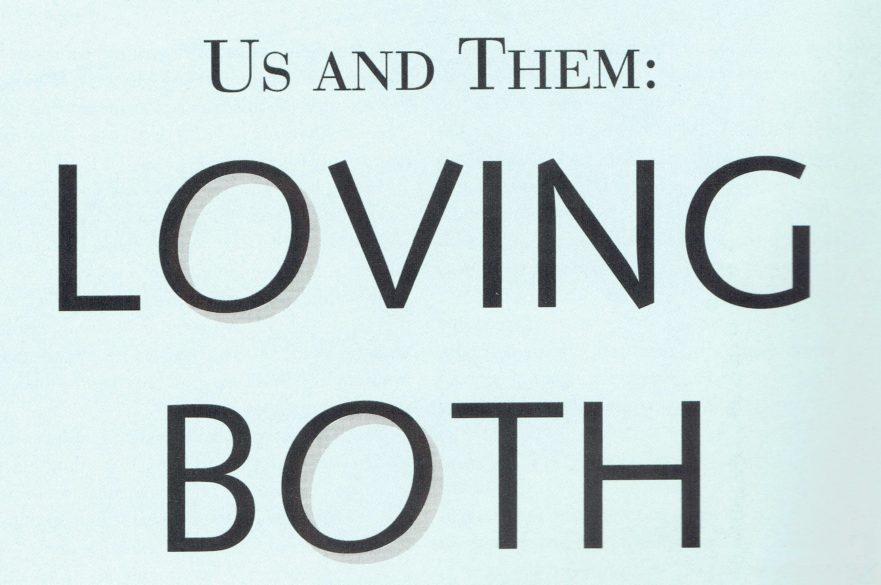
In ancient Roman society, the taking of revenge on an enemy was considered a commendable deed, but Jesus encouraged his followers to “Love your enemies.”
Design and Maintenance of First-century Ritual Immersion Baths
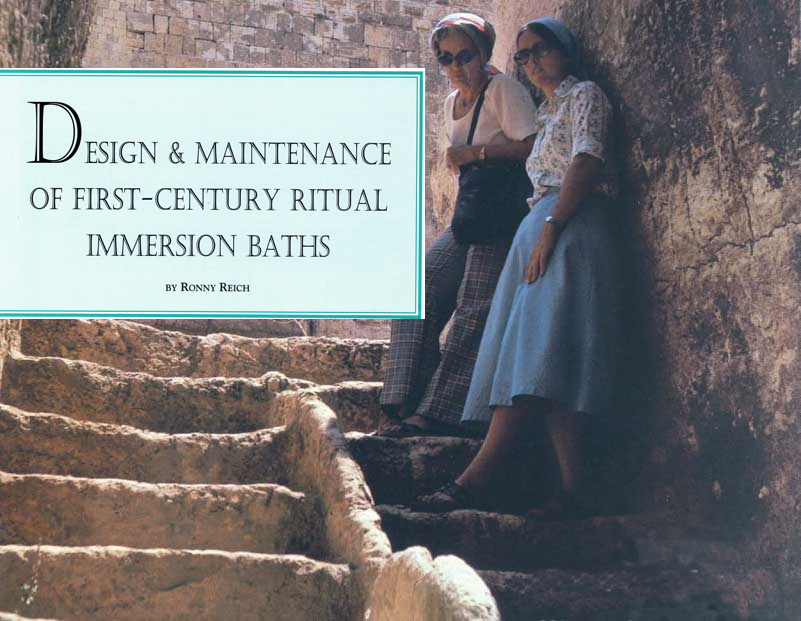
Archeologists and other scholars have not written prolifically about ancient mikvaot (or ritual immersion baths). Nevertheless, ritual immersion in the first century A.D. constitutes an important element of the overall historical, social and religious background of the New Testament. Here, Ronny Reich explains in non-technical language the intricacies of the design and maintenance of ancient mikvaot.
Deliver Us From Evil

Just as good poetry can convey multiple allusions, so “Deliver us from evil” can carry a variety of notions of protection from doing and experiencing evil.
From Allegro to Zeitlin

In this article the author explains his view that the output of cheap, pseudo-scholarship has driven legitimate, serious scholarly information from the marketplace of ideas.
Ostracon from Qumran Throws Light on First Church
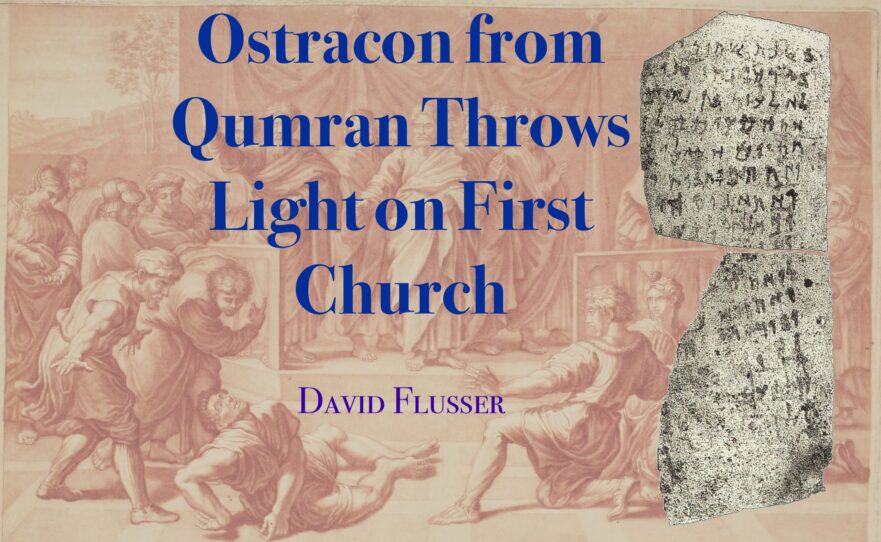
An inscribed potsherd discovered at Qumran provides an amazing parallel to a practice of Jesus’ first community of followers. According to the Book of Acts, members of that community sold their possessions and distributed the proceeds according to individual need.
Stewards of God’s Keys

Jesus gave his disciple Peter the “keys of the kingdom of heaven” and promised that whatever Peter “bound” and “loosed” on earth would be “bound” and “loosed” in heaven. What scriptural allusions lurk beneath these expressions and what are their implications? How does the Jewish literary background of Matthew 16:19 help us better appreciate Jesus’ words?
Matthew 16:18: The Petros-petra Wordplay—Greek, Aramaic, or Hebrew?
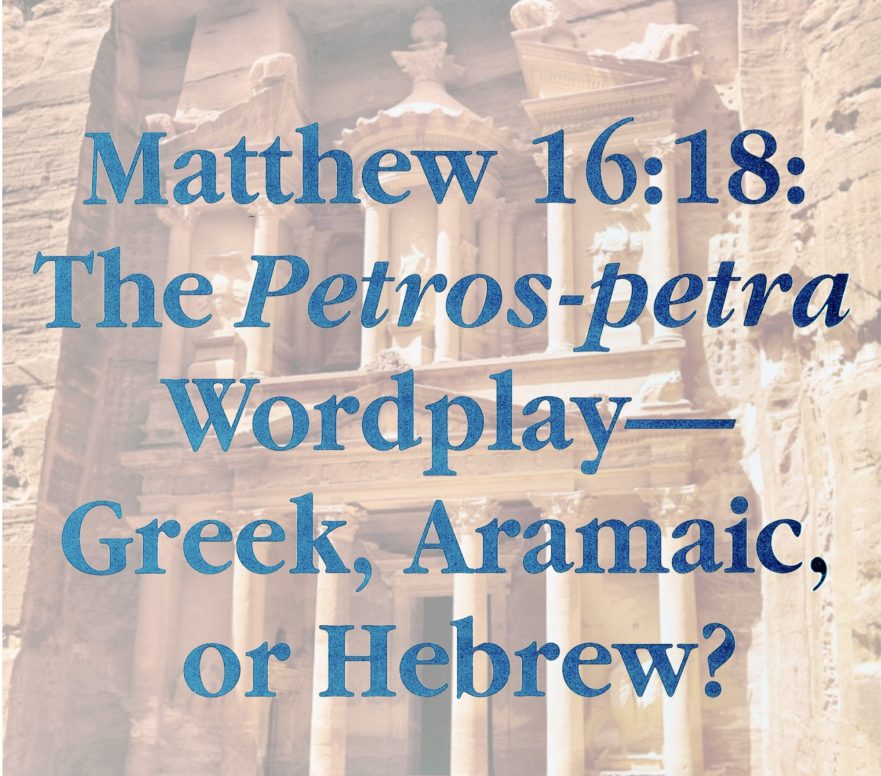
The pinnacle of the Gospel story may be Jesus’ dramatic statement, “You are Petros and on this petra I will build my Church.” The saying seems to contain an obvious Greek wordplay, indicating that Jesus spoke in Greek. However, it is possible that “Petros…petra” is a Hebrew wordplay.

